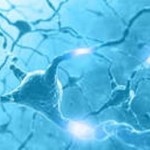Experiments Prove Stem Cells can treat Neurological Ailments
Latest discovery of experts revealed that neurons derived from human embryonic stem cells have the ability to send and receive nerve impulses when placed into the mouse brain.
Evidence proves that these neurons from human embryonic stem cells, also known as the hESC-derived neurons, could treat various neurological disorders like stroke, epilepsy and even Parkinson’s disease. Jason Weick of the University of Wisconsin, stated that neurons can actually receive information, but the main question is can the cells output the brain?
With the use of a method known as optogenetics, scientists were able to determine positive results when transplanting neurons from human embryonic stem cells with the mouse brain. After a thorough and successful series of tests, experts found out that mouse cells can receive impulses from hESC-derived neurons, thus there is greater chance that human cells can likewise receive impulses. For the first time in the history of science, scientists were able to prove that cells can modulate neuro-circuits in rats.
Further, results showed that hESC-derived neurons when transplanted to mouse brain can transform mouse’s behavior. With the aid of optogenetics as a tool for research, scientists will be able to control outputs of cell transplants.
